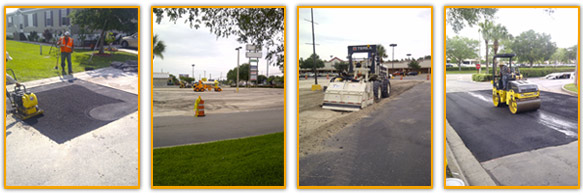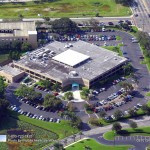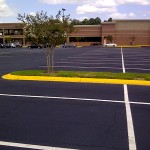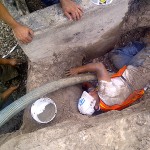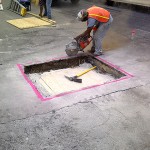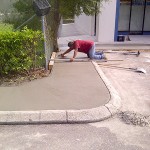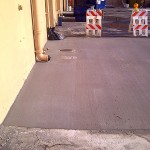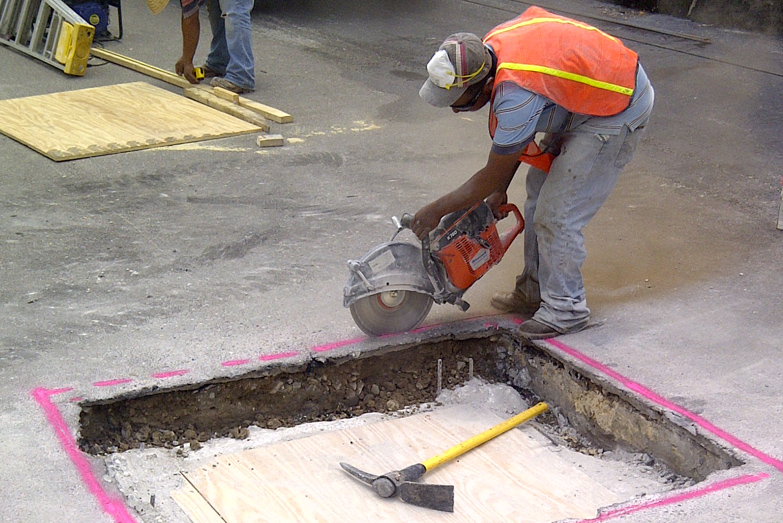
The 1993 AASHTO Guide states that the option of staged construction may dictate the type of pavement chosen in a given situation. Other factors such as speed of construction, access to businesses, maintenance of traffic during construction, safety, ease of placement, accommodation of future widening, and timing of construction during the year are also important in the selection of pavement type.
ASPHALT ALLOWS STAGING OPTIONS
Asphalt pavements allow for flexibility in construction, both in the ability to stage the construction sequence and in the ability to minimize the time for lane closures. Staging construction is often advantageous when funding levels or weather do not allow for a facility to be completed in a single year. The ability to build a substantial portion of the structure and then to finish it later helps agencies stretch budgets to take care of more projects in tight times. Also, if construction happens to start later in the year, and finishing it would push the schedule into cold weather, then letting traffic use the road over the winter and waiting for the next season to put on the wearing course allows maximum use of the facility.
ASPHALT PAVEMENTS CAN BE BUILT FAST
Speed of construction is one of asphalt’s primary advantages. Asphalt does not need a cure time of days or weeks, it merely needs to cool to a temperature that allows it to support loads, usually only a matter of hours after final compaction. There are numerous examples of freeway and airport pavement projects where asphalt pavements were completed in a matter of weekends with minimal disruption of traffic. This minimizes the cost of delays to pavement users, whether they are highway drivers and passengers, freight truckers, or airlines and airline passengers. It also helps to minimize the amount of emissions that result from traffic delays on highways due to idling engines. Thirty-two lane-miles of I-285 in Atlanta were constructed with asphalt using full shutdown for 56-hour work windows on weekends over a period of 22 weeks (Public Works, 2002).
A similar strategy was employed in the rehabilitation of the I-710 freeway near Long Beach, California in 2003. In this case, weekend shutdowns were used to crack and seat the existing concrete pavement, which was then overlaid with asphalt. The traffic on I-710 at that time consisted of about 150,000 vehicles per day with 15 percent trucks. This project is notable because I-710 is the main corridor between the Port of Long Beach and the main railhead to transport goods across the country.
Warm-mix asphalt technology was used to reconstruct the main runway at the international airport in Frankfurt, Germany, which is the tenth largest air cargo hub in the world. This involved the mobilization of equipment late each night, removal of a portion of the concrete pavement, the placement and compaction of the warm mix, and having the pavement ready for air traffic by 6:00 a.m. every day.
ASPHALT CONSTRUCTION TIMING IS A MATTER OF FLEXIBILITY
Because asphalt does not need to cure, traffic can be allowed during peak hours and construction can take place during off-peak periods. As with the examples in Atlanta and Long Beach, a series of complete weekend closures allows lanes to be available during weekday traffic, or if traffic dictates, the pavement can be closed and work can be accomplished during the night and reopened for traffic during the day as was done at the Frankfurt International Airport. A detailed traffic study, including hourly volumes and alternate routes, and a public information campaign will help to minimize user cost and inconvenience. In any case, long, user- expensive shutdowns are not needed to construct asphalt pavements.

